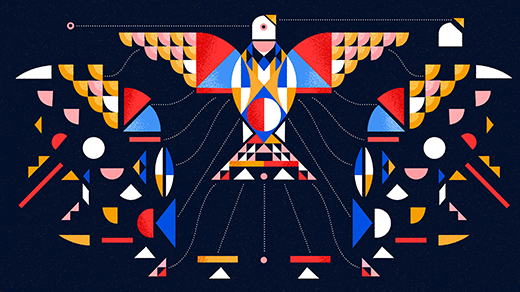What's up in
Complexity
Latest Articles
Why Everything in the Universe Turns More Complex
A new suggestion that complexity increases over time, not just in living organisms but in the nonliving world, promises to rewrite notions of time and evolution.
Teen Mathematicians Tie Knots Through a Mind-Blowing Fractal
Three high schoolers and their mentor revisited a century-old theorem to prove that all knots can be found in a fractal called the Menger sponge.
The Cosmos Teems with Complex Organic Molecules
Wherever astronomers look, they see life’s raw materials.
How Is Science Even Possible?
How are scientists able to crack fundamental questions about nature and life? How does math make the complex cosmos understandable? In this episode, the physicist Nigel Goldenfeld and co-host Steven Strogatz explore the deep foundations of the scientific process.
The New Math of How Large-Scale Order Emerges
The puzzle of emergence asks how regularities emerge on macro scales out of uncountable constituent parts. A new framework has researchers hopeful that a solution is near.
New Proof Finds the ‘Ultimate Instability’ in a Solar System Model
For the first time, mathematicians have proved that planetary orbits in a solar system will always be unstable.
A New Idea for How to Assemble Life
If we want to understand complex constructions, such as ourselves, assembly theory says we must account for the entire history of how such entities came to be.
Work on Earth’s Climate and Other Complex Systems Earns Nobel Prize in Physics
Syukuro Manabe and Klaus Hasselmann have been honored for their work that led to reliable predictions of the effects of climate change. They will share the Nobel with Giorgio Parisi, who has made pioneering studies of chaotic physical systems.
The Year in Biology
While the study of the SARS-CoV-2 virus was the most urgent priority, biologists also learned more about how brains process information, how to define individuality and why sleep deprivation kills.








